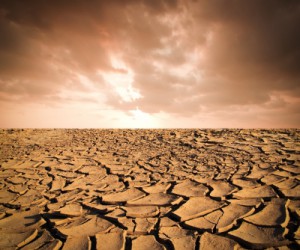Africa
is home to some of the largest lakes in the world, both in surface area and
volume. These lakes play a significant role in the political, social, economic
and environmental life of the continent’s people, and their importance is set
to increase. However, the strain placed upon these water resources is forecast
to pose significant challenges for their
future sustainable development. This points to the important internal dimension
of African water politics. That these issues remain, for the moment, relatively
marginal, impels all those concerned with water to consider its future
management with the greatest care.
Mainstream consensus in water security studies and politics holds that African water resources are at risk, that most countries are water-stressed and that this heightens the risk for conflict. A number of emergent issues are rapidly increasing in prominence and deserve increasing consideration.
Firstly,
the issue of illegal, unreported and unregulated (IUU) fishing must remain
firmly fixed in the spotlight. Indeed, the World Wide Fund for Nature South
Africa (WWF-SA) recently highlighted the perilous future facing inshore marine
fishing sources for Africa’s littoral states. According to the WWF-SA a great
number of South Africa’s inshore marine resources are considered overexploited
or collapsed.
This applies to other parts of Africa, yet attention must be paid to internal sources of fish such as rivers and lakes, thereby emphasising the importance of co-operative governance and the regulation of fishing.The dependency on fish as a source of protein and livelihood is likely to increase and the example of Lake Victoria further demonstrates how these areas will have to be managed in a way that is both efficient and co-ordinated.
The introduction of Nile perch in the past was primarily motivated by the objective of bolstering development, but this has had a detrimental effect on the lake, the ecology of which has changed as a result of this past meddling.
In
August 2011, the tiny Kenyan island of Migingo in Lake Victoria became the
focal point for a dispute between Uganda and Kenya, resulting from past
uncertainties of borders and contemporary pressures for securing food and
livelihoods.
The value of the island lies in its location within rich fishing grounds; it is a mere 500 metres from Ugandan waters, and accusations of poaching and unequal access to ostensibly shared resources has heightened tensions.It further illustrates how the past management of lakes continues to impact upon the situation today, and how advocating prudent and co-operative strategies now is vital to avoid a repetition of tension and possible conflict.
The quality of water is becoming
an increasing problem, as pollution levels from industrial runoff, or else hypertrophication
caused by agricultural runoff, heighten the risks to the health of people who
rely on the lakes, as well as the ecosystem itself.
Secondly, analysis that utilises satellite imagery has helped reveal a particular source of concern into the future: the shrinking amount of water available and the speed at which water becomes ever scarcer, notably the United Nations Environmental Programme’s 2006 study, “Africa’s Lakes: Atlas of Our Changing Environment”.
In the case of Lake
Chad, it remains indicative of the problems of interstate co-operation. The
Lake Chad Basin Commission is the oldest such commission in Africa, but has
been unable to prevent the retreat of the lake.
Few solutions for addressing shrinking water sources are deemed viable, or else come with attached costs and risks. In the past, it was suggested that transferring water is the only means of resupply, given the strain placed on rivers that feed Lake Chad, such as the Chari and Logone.
A long-standing proposal
to divert waters from other basins to stop the retreat of Lake Chad has often
been considered, and highlights the final issue that deserves attention: the
politics of dam construction as well as large projects resulting in inter-basin
water transfers.
Africa has nearly 1 300 dams but, according to The Economist, only 3% of the water resources of the continent are efficiently utilised because of poor water reservoirs, extraction and routing infrastructures, which leaves great scope for the building of dams in the future. The announcement of the expansion of the Lesotho Highlands Water Project is expected to further integrate South Africa with Lesotho. The goal is to ensure a continued water supply to counter fears of a looming water scarcity – particularly in the province of Gauteng – but the costs involved have to be clearly defined beforehand.
As the project will take a long
time to complete, ensuring the water that is already being transferred is not
wasted must remain a top priority. This involves not simply a fair calculation
of the value attached to water, but points to the need to reconceptualise the
essential value of water itself, so that it is treated with the utmost regard.
A change in thinking would also mean that due concern is extended to all who
are affected by these projects, particularly in those areas where dams are
constructed.
It is crucial, to bear in mind the conclusions of the late former South African Minister Kader Asmal, for the World Commission on Dam’s report in 2000, which noted that while “dams have made an important and significant contribution to human development, and benefits derived from them have been considerable. In too many cases an unacceptable and often unnecessary price has been paid to secure those benefits, especially in social and environmental terms, by people displaced, by communities downstream, by taxpayers and by the natural environment.”
For more information on this article or other related topics subscribe to Energy Forecast at Cape Media Corporation, leeann@capemedia.co.za or visit our 3D issue on the website.
Timothy Walker: Consultant
Conflict Management and Peace-building
Institute for Security Studies:
Pretoria Office










